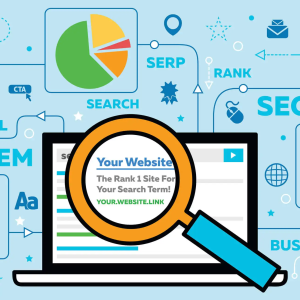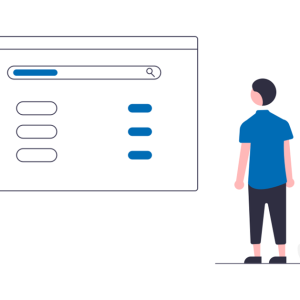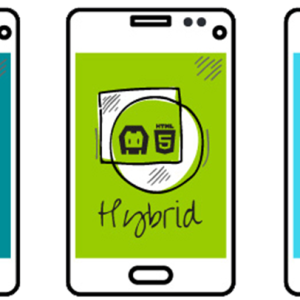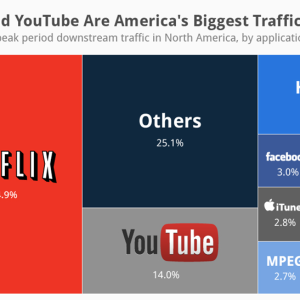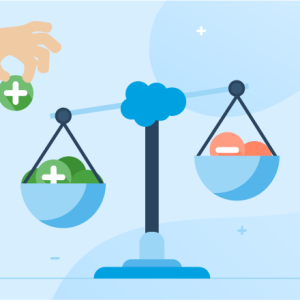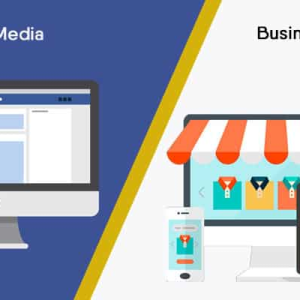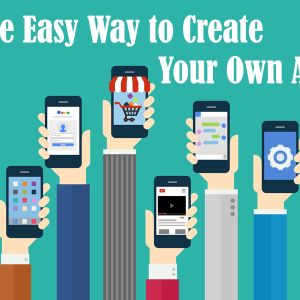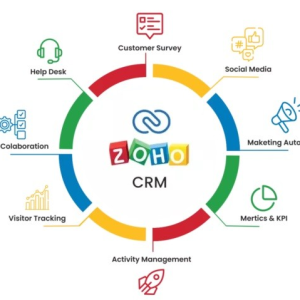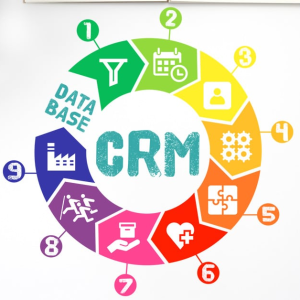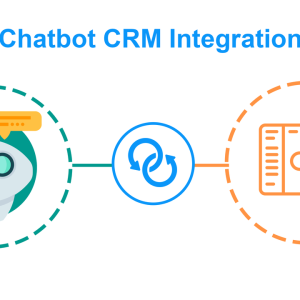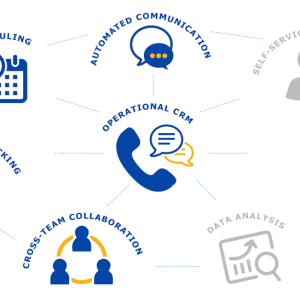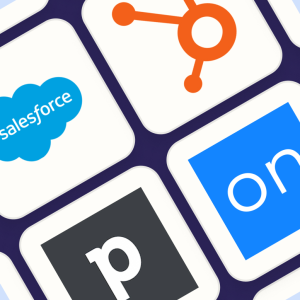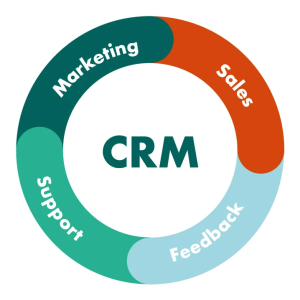Global internet use is currently 59.5%. Of course, you don’t want to lose your chance to reach even a fraction of that number, right?
Bowwe
Introduction
Businesses have been using social media as a way to connect with customers and promote their products for years. However, there are some major advantages to using a website over social media. In this article, we will explore the reasons why websites are better for businesses than social media for some businesses and how they can make the most of both platforms.

The Social Media Misconception
How can you say such a thing – you might think! Fair enough. Because why not – after all, social media is where everybody is spending their time, so it only makes sense that businesses should also be present there, right?
Wrong. Social media sites are not created equally and they certainly don’t all offer the same opportunities for businesses. In fact, in many ways, websites are better for business than social media sites. Here’s a look into the classification between the both.
Websites vs Social Media
For starters, let’s look at the key differences between websites and social media sites.
1. Websites are typically static, while social media sites are dynamic
This means that the content on a website doesn’t change very often, while the content on social media sites is constantly changing.
This also means that businesses have more control over the message they are trying to communicate on their website than they do on social media.
2. Websites are more formal, while social media sites are more informal
The way businesses communicate on their website is usually much different than the way they communicate on social media.
On websites, businesses tend to use a more formal tone and language. Social media, on the other hand, is a more informal platform where businesses can be more flexible with their messaging. Though this alone should not make you refrain from using a social media handle, because it is a platform where videos can go viral overnight or a trend can start in a matter of minutes. It all boils down to the content you post and the way you use these platforms.
3. Websites are typically one-way communication, while social media sites are two-way communication
When businesses communicate on their website, they are typically doing so through content like blog posts or articles. This is a one-way form of communication where businesses are sharing information but not soliciting feedback from their audience.
Social media, on the other hand, is a two-way form of communication. This means that businesses can interact with their audience and solicit feedback in real-time.
4. Websites are accessed primarily through search engines, while social media sites are accessed primarily through social media networks
Most people find websites by searching on a search engine like Google or Bing. Social media sites, on the other hand, are typically accessed by logging into a social media network like Facebook or Twitter.
5. Websites allow businesses to control their branding, while social media sites do not
The look and feel of a website are under the complete control of the business. Businesses can choose to have a professional-looking website or a more relaxed and informal website, depending on their brand identity.
Social media sites, on the other hand, have a set look and feel that businesses cannot change. This means that businesses have to work within the constraints of the social media platform they are using.
6. Websites are typically more expensive to set up and maintain than social media sites
While it is possible to set up a website for free, it typically costs money to create a professional-looking website. In addition, businesses will need to pay for hosting services and may need to hire someone to design and maintain their website.
Social media sites, on the other hand, are typically free to set up and use. The only cost associated with social media is the time it takes to create and post content.
7. You can earn from a social media page with sponsorships and Ad revenue but with a website, you have more control over how you generate revenue.
What this means is, that there is a lot that goes on to a website than on social media, however, with a website, businesses ultimately have more control over their branding, message, and revenue.
While social media should not be ignored by businesses, it’s important to understand that websites are still the most powerful tool for businesses when it comes to online presence. They have a lot more flexibility when it comes to generating revenue.
So there you have it! These are just some of the key differences between websites and social media sites. As you can see, each has its own set of advantages and disadvantages. So which is better for businesses?
Advantages of a Website Over Social Media

Now that we’ve looked at the key differences between websites and social media sites, let’s explore the reasons why websites are better for businesses than social media in more detail.
1. Websites are more flexible
As we mentioned before, websites are typically static while social media sites are dynamic. This means that businesses have a lot more control over the look and feel of their website than they do with their social media page.
Businesses can also choose to add or remove features from their website as they see fit. For example, businesses can choose to add an e-commerce store to their website or remove it if they decide to stop selling products online.
2. Websites are more credible
When people see a business’s website, they automatically assume that the business is more credible and trustworthy than if they were just seeing the business’s social media page.
This is because websites allow businesses to present themselves professionally and to control the message they are trying to convey.
3. Websites are more permanent
Social media platforms come and go, but websites are here to stay. This is because businesses have complete control over their website and can choose to keep it online for as long as they want.
4. Websites can generate revenue in more ways than social media pages
While social media pages can generate revenue through sponsorships and advertising, websites have a lot more flexibility when it comes to generating revenue.
Businesses can choose to add an e-commerce store to their website or sell products and services directly from their website. They can also choose to add affiliate links or banner ads to their website.
5. Websites are easier to optimize for search engines
Search engine optimization is the process of optimizing a website so that it appears higher in the search results of Google and other search engines.
This is important because it allows businesses to get more traffic to their website and potentially generate more revenue.
Websites are easier to optimize for search engines than social media pages because businesses have complete control over the content on their website.
6. Websites can be accessed by anyone, anywhere in the world
Social media platforms are typically blocked in certain countries. This means that businesses whose target market is in a country that blocks social media will not be able to reach their target market through social media.
Websites, on the other hand, can be accessed by anyone, anywhere in the world as long as they have an internet connection.
7. Websites are more flexible when it comes to marketing
Businesses have a lot more flexibility when it comes to marketing their website than their social media page.
They can choose to run ads on their website, add affiliate links, or even create a blog to market their business.
8. Websites give businesses more control over their data
Social media platforms like Facebook and Twitter own the data that is posted on their platform. This means that businesses have very little control over their data and how it is used.
Websites, on the other hand, give businesses complete control over their data. This means that businesses can choose to share or sell their data as they see fit.
9. Websites are not reliant on social media platforms
Social media platforms are constantly changing the rules and algorithms that they use. This means that businesses that are reliant on social media for traffic can suddenly find themselves with no traffic overnight.
Websites, on the other hand, are not reliant on social media platforms and will continue to receive traffic even if social media platforms were to disappear tomorrow.
10. Websites give complete control over navigation and layout
The navigation and layout of a website are important because they can impact the user experience.
Businesses have complete control over the navigation and layout of their website but only limited control over the navigation and layout of their social media page.
This means that businesses can ensure that their website is easy to navigate and has a good user experience.
Websites are better than social media for businesses because they provide businesses with a professional way to present themselves, more control over their data and navigation, the ability to generate revenue in more ways, and more flexibility when it comes to marketing. However this does not mean you should desert your social media presence but businesses should consider creating a website in addition to their social media pages to ensure that they are reachable by anyone, anywhere in the world.
Which Businesses Should Concentrate on Building a Website Over Social Media

You have learned so many advantages of a website over social media, however, if you are in the entertainment industry you might think – wait a minute, isn’t social media the best platform for me to be on? After all, my customers are using it every day.
The fact is that even if you are in the entertainment industry, having a website is still advantageous. It’s not an either/or proposition – you can have both a website and social media accounts. Although websites are not equally benefitting all businesses, they do for MOST. So, which businesses should concentrate on building a website over social media? Here is the list:
1. If you are in a very specific niche
The fact is that the more specific your niche is, the less likely it is that people will be talking about it on social media. For example, if you are a business that specializes in accounting software for dentists, it’s unlikely that people will be talking about it on social media. However, people will be searching for it on Google first.
Look at this; this way – A man in his 20s is suffering from a toothache. A man in his 20s will likely be the one to spend his time on social media the most than Google, but it only makes sense for him or anyone in his situation to google “toothache” first. Then he will most likely scroll through the websites that come up on the first page of Google, which is where your website should be.
2. If you are in a very competitive industry
The fact is that if you are in a very competitive industry, it’s going to be very difficult to stand out on social media. This is because there are so many businesses in your industry all vying for attention.
However, if you have a website, you can optimize it for SEO so that it appears on the first page of Google. This will give you a big advantage over your competitors who don’t have websites or have websites that are not optimized for SEO.
3. If you are a B2B business
The fact is that most people who are searching for a B2B service are going to search for it on Google, not social media. This is because they are looking for a specific service and they want to find the best provider of that service.
If you are a B2B business, it’s important to have a website so that you can be found by people who are searching for your services on Google.
4. E-commerce businesses
The fact is that if you are an eCommerce business, you need to have a website. This is because websites give an edge in terms of credibility, search engine optimization, and customer service that social media simply can’t provide.
For eCommerce businesses, a website is the best way to establish trust and credibility with potential customers. When someone visits your website, they can see all of the information about your business at once. This includes your About page, your product or service offerings, your policies, and more.
All of this information helps to build trust with potential customers. They can see that you are a legitimate business with a well-thought-out website. They also have all of the information they need to make a purchasing decision right at their fingertips.
In contrast, social media is much less formal. It’s harder to find all of the information about a business on social media. And when people do find it, they often have to scroll through a lot of posts and comments to get to it.
This can make potential customers feel like they don’t know what they’re getting into. Also “DM us” to buy is likely to be ignored than “Add to Cart” because of the native eCommerce capabilities of websites.
5. If you want to control your narrative
The fact is that if you want to control your narrative, you need to have a website. This is because social media is a platform where anyone can say anything about you.
If you have a website, you can control what people see when they visit it. You can determine the messaging and the tone. You can also control what people see when they visit your website.
However, on social media, you can’t control what people say about you. If someone leaves a negative review or comment, it will be there for everyone to see. This can damage your reputation and make it hard for you to attract new customers.
“I would delete the review or comment” attitude is good but not great because (1) People will think you have something to hide and (2) If the person who left the review or comment is a troll, they will just leave another one.
6. If you want to build a long-term relationship with your customers
The fact is that if you want to build a long-term relationship with your customers, websites and social media handles are equally great. But let us take a scenario where you have been following an account for ages and all they sell on is on social media, for various reasons you or they might have deleted the account, and now what?
You have no way to contact the person, there is no way to find them, and you have lost all your history with that person. However, if you have a website, people can always find you. Your website is a long-term investment that will continue to pay dividends even if social media platforms come and go.
7. If you want to make money
The fact is that if you want to make money, you need to have a website. This is because social media platforms are not designed for businesses to make money. Most social media platforms actively discourage businesses from selling on their platforms.
For example, Instagram has strict policies against businesses selling products through their platform. Facebook is the same way. The only way to sell on these platforms is to use sponsored posts or ads. And even then, you are limited in what you can do.
Websites, on the other hand, are designed for businesses to make money. There are a lot of options like generating revenue per click, per view, or sale. You can also use your website to generate leads for your business.
8. If you want to track your results
You can track your results anywhere, even social media handles provide their metrics but the fact is that if you want to track your results accurately, you need to have a website. This is because social media platforms only give you a limited amount of data about your customers and their behavior.
For example, you might be able to see how many people clicked on your link or ad. But you won’t be able to see how many of those people made a purchase. With a website, you can track every single customer and their behavior. This allows you to fine-tune your marketing efforts and make sure that you are getting the most return on your investment.
In conclusion, websites are better than social media for businesses because they provide more control, allow you to build long-term relationships with customers, and make it easy to track your results. So if you are serious about growing your business, you need to have a website.
How to Make the Most of Your Website
Making the most of your website can be easy if you follow these simple tips:
1. Use attractive visuals
People are visual creatures and will respond positively to an attractive website. Make sure that your website is pleasing to the eye and includes high-quality images.
2. Use compelling copy
Your website copy should be clear, concise, and persuasive. It should be free of grammar and spelling errors, and it should be designed to sell your products or services.
3. Use effective calls to action
Your website should include calls to action that encourage visitors to take the next step, whether it’s signing up for your newsletter, downloading a free ebook, or making a purchase.
4. Use negative space
Negative space is the space on your website that surrounds your content. It makes your content more readable and easier for the eyes.
5. Use social media
“Huh! here you say social media” is that what you think?
We have nothing against social media but using it as a tool to drive traffic is a much better idea than as a substitute for a website.
6. Use analytics
Use Google Analytics or another similar service to track the results of your marketing efforts. This data will help you determine what’s working and what’s not, so you can make the necessary adjustments.
7. Use a responsive design
Responsive design is a type of web design that allows your website to adapt to the screen size of the device it’s being viewed on. This is important because more and more people are using mobile devices to access the internet.
8. Use a content management system
A content management system (CMS) is a software application that allows you to create, edit, and publish content on your website. WordPress is one of the most popular CMSs in use today.
9. Use search engine optimization
Search engine optimization (SEO) is the process of optimizing your website to get higher search engine rankings. This includes things like choosing the right keywords, creating compelling content, and building links to your website.
10. Use a mobile app
If you want to take your website to the next level, consider creating a mobile app for your business. This will allow you to reach a larger audience and provide them with a convenient way to access your products or services.
Even after all these trials to make you create a website, we still don’t believe that your business can provide an “IT” factor without a social media profile. All we are trying to say is that having a website gives your business more wings to fly.
But wait! We are not done yet. Let’s take a look at businesses that started with a social media account and made it big with a website
Businesses that started with a social media account and made it big with a website
Let us a scenario – you are a local business that has made it big on social media and now you have gathered all the funds to make a website. You have put in all the money, time, and effort but you are not getting the traffic that you used to get on social media. Why? It is because you are not using your website right.
And you have already read how to make the most of your website but you still need to know how to make it better than social media for your business. I know a business or two who struggled at first but learned pretty soon from their mistakes. Let’s take a look, shall we?
Example #1 Juicy Chemistry

JuicyChemistry is an online store that specializes in selling handmade soaps and cosmetics. The company started as a small startup with just a Facebook page. But after seeing the potential of their business, they decided to invest in a website.
The results?
They increased their traffic by 400% and their sales went up by 600%.
What did they do right?
First, they chose the right platform for their business. They went with Shopify, which is perfect for businesses that sell physical goods. Second, they used high-quality product photos and descriptions to entice visitors to make a purchase. And lastly, they created a blog to drive traffic to their website.
Example #2 Braid
Braid is a creative agency that provides branding, web design, and marketing services to small businesses. The company started as a one-man operation run by founder and CEO, Dan Goldsmith. He promoted his business through Twitter and Facebook, which led to him getting his first few clients.
As his business grew, he decided to invest in a website. The results?
He increased his traffic by 700% and his clientele grew exponentially.
What did he do right?
First, he chose a WordPress theme that matched his brand identity. Second, he used an attractive design to stand out from the competition. And lastly, he used compelling copy to persuade visitors to contact him for his services.
Even if you are a small business, investing in a website can do wonders for your business. It doesn’t matter if you are starting from scratch or if you already have a following on social media. If you use your website correctly, you can see a significant increase in traffic and sales.
So, what are you waiting for? Start building your website today!
But wait, who won the battle?
None (or) both. For example, you won a trophy at the grammy and you have prepared the speech ever since, but as you walk towards the podium, you notice a dead silence, there is no audience to clap for your achievement. In the same way, a website is only as good as the traffic it generates. If you don’t have any visitors, then your website is worthless. Trophies or awards would not make much sense.
But if you do have visitors, then your website can be a powerful tool to help you achieve your business goals.
This is where social media works its magic. Because social media is all about generating traffic. You can use social media to promote your website and drive traffic to it.
And when you combine the power of social media with the power of a website, you have a recipe for success.
So, which one should you choose – Social Media vs Website
The answer is both. But it narrows down to your business goals. If you want to increase brand awareness or generate leads, then you should use social media. But if you want to increase sales or build a more engaged audience, then you should use a website.
But at the end of the day, what’s more important for any business is traffic. If you can generate enough traffic, then you can achieve anything you want with your website. So, focus on driving traffic and the rest will fall into place.
Conclusion
If you need help getting started, do not hesitate to hire an agency that is both experienced in creating a website and handling your social presence because these are not easy tasks. A good agency will understand how to use both platforms to your advantage and help you achieve your business goals.
Now that we’ve looked at the pros and cons of websites and social media, it’s time for you to decide your strategy or you can even talk to our subject matter experts at 12 Channels to help you make a better decision. Contact us today and get a free consultation.

